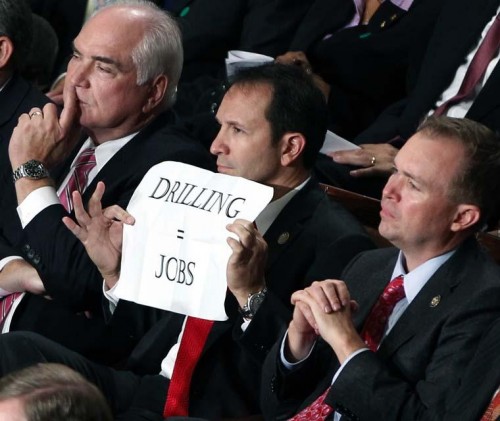
Summer Jade Duplantis
September 20, 2011
Alvin Harding Sr.
September 22, 2011Attempting to win over public opinion regarding current employment figures, and not offend football fans by entering speechmaking overtime that would have preempted the NFL season opener between the New Orleans Saints and Green Bay Packers, President Barack Obama presented his more than $450 billion America Jobs Act before a joint Congress on prime time television.
Obama began by pointing out the obvious, the nature of the workforce has changed.
He then presented basically an internal stimulus plan that offered ordered increases in federal budget cuts, employment tax credits, promises to increase taxes on the wealthy who often create jobs, provisions for schools which have been cutting teaching and administrative positions during the past two years, investing in infrastructure programs, saving social services and offering something for almost everyone. All while promising an end to earmarks, boost in family tax credits, provide incentives to hire veterans and reduced red tape to get it all accomplished.
The president’s plan, which carried a familiar campaign tone, claimed to combine elements wanted by both Democrats and Republicans. It was a message not easily bought by business and elected officials from southern Louisiana.
Sen. David Vitter (R-La.) was among a handful of elected officials that did not even attend the president’s speech, but watched it on television while waiting for the opening football kickoff.
“I’m disappointed with the president’s general approach,” Vitter said, while acknowledging he was also disappointed with the Saints 42-34 loss to the Packers. The senator said that doling out almost $500 billion in stimulus spending is not a practical plan. “If that were an effective solution, [the president] wouldn’t have had to give this speech,” he said.
Rep. Jeff Landry (R-New Iberia) was spotted in the session holding up a sign that read, “Drilling = Jobs,” which suggested an appeal to return offshore oil drilling permits back to pre-BP spill levels, and enhance direct exploratory and offshore servicing work, thus boosting a primary job-creating industry on which others rely.
“By allowing the hard-working people in the Gulf of Mexico to ply their trade, we can save 25,000 jobs,” Landry said. “By lifting the ban on offshore drilling we could create 1.2 million jobs.”
Following party lines, Sen. Mary Landrieu (D-La.) said that Obama’s plan offers a “solid foundation,” but admitted being disappointed that he did not address offshore petroleum production.
While politicians poised for position, business leaders were more direct in their sentiments
“President Obama missed a golden opportunity to create jobs and generate revenue that would improve our economy,” Gulf Economic Survival Team Executive Director Lori LeBlanc said. “Organizations representing thousands of businesses and millions of workers depend on the Gulf of Mexico energy production joined together to ask him for a simple solution that would have a profound economic impact: return permitting for oil and gas production to levels commensurate with the industry’s capacity to invest.”
Holding back one industry that has carry-over impact on other businesses is a primary contributor to the 9.1 percent national unemployment and an underemployment level of 16.1 percent.
The underemployed, according to Robert Half Division Director Toby Toups, represents many skilled workers who have taken lesser paying or even temporary and part time jobs to keep groceries on the table while the workforce remains in a slump.
“It’s hard to say what kind of impact [Obama’s jobs plan] is going to have,” Toups said. “I can tell you it is a competitive job market and we are not going to see that change in a hurry.”
A study, provided by LeBlanc and conducted by IHS Global insight, states that 230,000 new or retained American jobs, representing more than $44 billion a year in gross domestic product and $12 billion in tax and royalty revenue could be generated in 2012, if offshore permitting were restored.
During his speech, Obama invoked a sense of pride by declaring more products need to be stamped as being “Made in America.” Those familiar with manufacturing in coastal Louisiana know that for hundreds of directly and indirectly industries “Made in America” must be preceded with possessing the raw material being “Produced in America.”
Rep. Jeff Landry (R-La.) holds a sign during the Sept. 8 speech by President Barack Obama to a joint session of Congress at the Capitol in Washington. AP PHOTO








